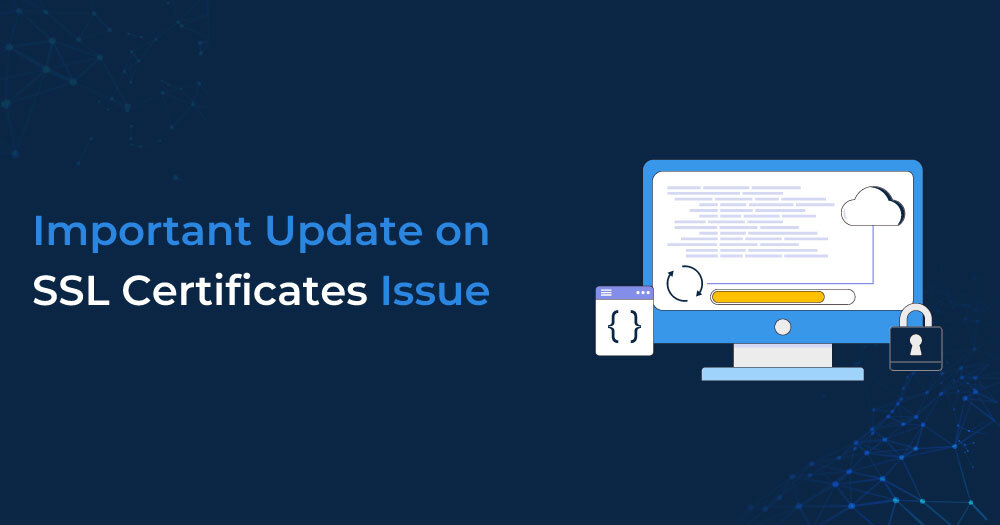Best Web Hosting, It is equally committed to upholding client transparency as it is to offering a safe and dependable platform for your internet presence.
It has discovered a rare problem that affects some SSL Certificates when they are about to expire. The issue has been resolved.
A simple SSL certificate that is given via SSL technology is already included in the web hosting, reseller hosting, and dedicated server packages.
Which is affected?
The recent issue with SSL certificates has significant implications for many businesses and individuals relying on secure internet connections. SSL (Secure Sockets Layer) certificates are essential for encrypting data and ensuring safe online communication. However, a vulnerability has been discovered, potentially affecting a wide range of users.
Organizations with outdated or improperly configured SSL certificates are at the highest risk. This includes small businesses, large enterprises, and any website or service requiring secure data transmission. The vulnerability could expose sensitive information, such as personal data, financial details, and confidential communications, to cyber threats.
Users visiting websites with compromised SSL certificates may also be affected. They risk having their data intercepted or falling victim to phishing attacks. It’s crucial for both website administrators and users to be aware of this issue.
Immediate action is required to mitigate the risks associated with this SSL certificate vulnerability. Businesses should review their SSL certificate configurations, update them as necessary, and ensure they comply with the latest security standards. Users should stay vigilant, avoid sharing sensitive information on unsecured sites, and report any suspicious activity. Staying informed and proactive is essential in addressing this significant security challenge and protecting data integrity across the internet.
What is the problem?
A critical vulnerability has been identified in SSL (Secure Sockets Layer) certificates, which are fundamental to ensuring secure online communication. SSL certificates encrypt data transmitted between a user’s browser and a web server, safeguarding sensitive information such as personal details, passwords, and financial transactions from cyber threats.
The issue stems from a flaw in the SSL protocol or in the certificate management process, potentially allowing attackers to intercept, decrypt, or manipulate the data being transmitted. This vulnerability compromises the integrity and confidentiality of online communications, making it easier for cybercriminals to execute man-in-the-middle attacks, eavesdrop on confidential exchanges, or present fraudulent websites as legitimate.
Organizations relying on SSL certificates for secure operations are at significant risk. This includes e-commerce sites, financial institutions, healthcare providers, and any business handling sensitive customer information. The flaw can undermine customer trust, lead to data breaches, and result in substantial financial and reputational damage.
To address this issue, affected entities must promptly update their SSL certificates, ensure they are correctly configured, and adhere to the latest security protocols. Users should remain cautious, verify the security of websites they interact with, and report any suspicious activities. Understanding and addressing this SSL certificate vulnerability is crucial for maintaining secure and trustworthy online interactions.
How can this be resolved?
Addressing the SSL certificate vulnerability requires immediate and decisive action to ensure online security and data integrity. The primary solution involves updating and correctly configuring SSL certificates to adhere to the latest security standards and protocols.
First, organizations should conduct a comprehensive audit of their SSL certificates, identifying any that are outdated or improperly configured. These certificates must be promptly renewed or replaced with those that support the latest encryption algorithms and protocols, such as TLS 1.3, which offers enhanced security features.
Next, implementing strict certificate management practices is essential. This includes regularly monitoring the expiration dates of SSL certificates, automating the renewal process, and ensuring that all certificates are sourced from trusted Certificate Authorities (CAs). Organizations should also configure their servers to use strong encryption methods and disable outdated protocols like SSL 3.0 and TLS 1.0.
Furthermore, enabling HTTP Strict Transport Security (HSTS) can add an extra layer of protection by forcing browsers to only interact with websites over secure connections.
For users, staying vigilant is key. They should ensure their browsers are up-to-date and look for indicators of secure connections, such as the padlock icon in the address bar.
By promptly addressing these SSL certificate issues through updates, proper configuration, and robust management practices, organizations can significantly mitigate the risk of cyber threats and maintain the integrity of their secure communications.
Conclusion
In conclusion, addressing the SSL certificate vulnerability is crucial for maintaining secure online communications. Organizations must update and properly configure their certificates, implement robust management practices, and adopt the latest security protocols. Users should remain vigilant and ensure they interact with secure websites. Taking these steps will significantly reduce the risk of cyber threats and protect sensitive data.
